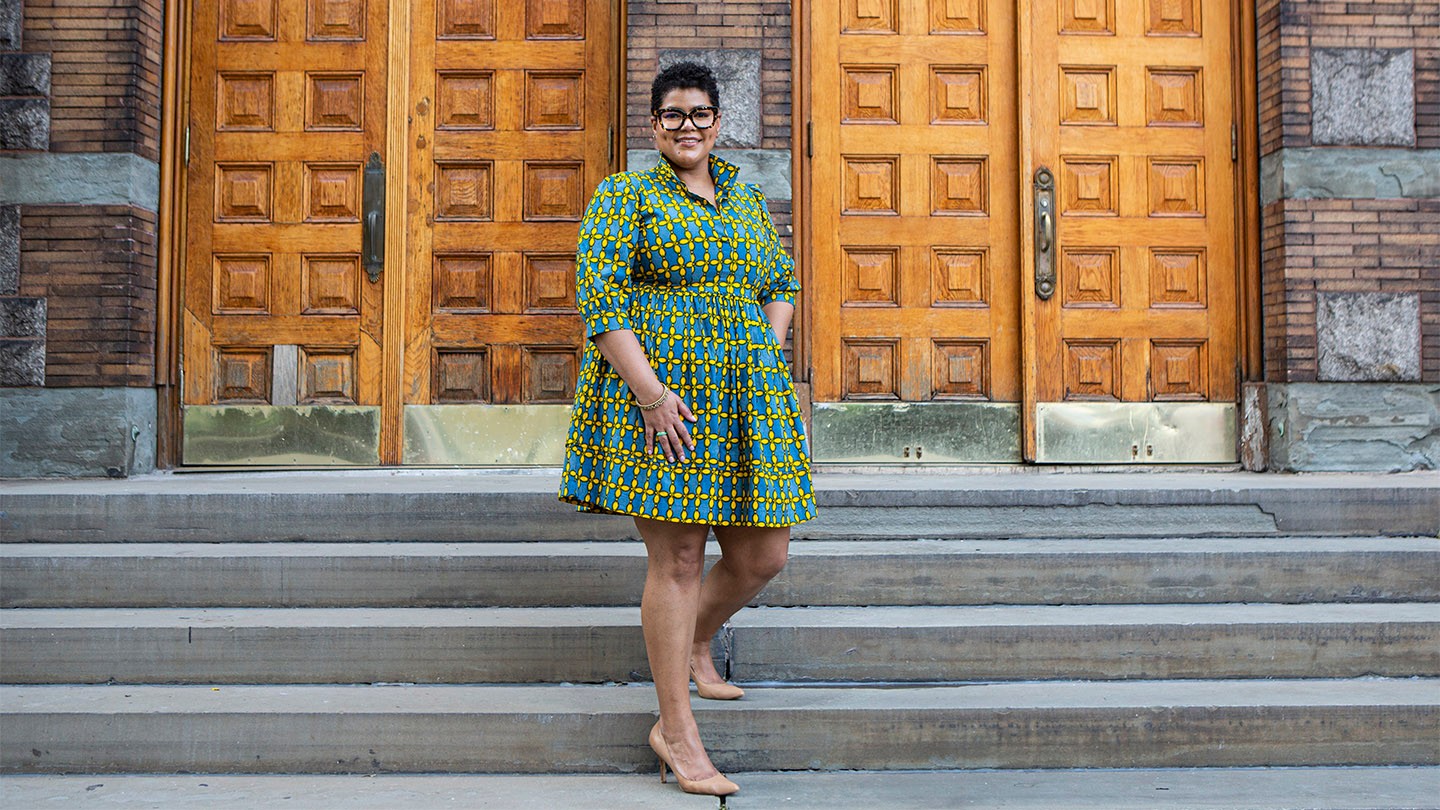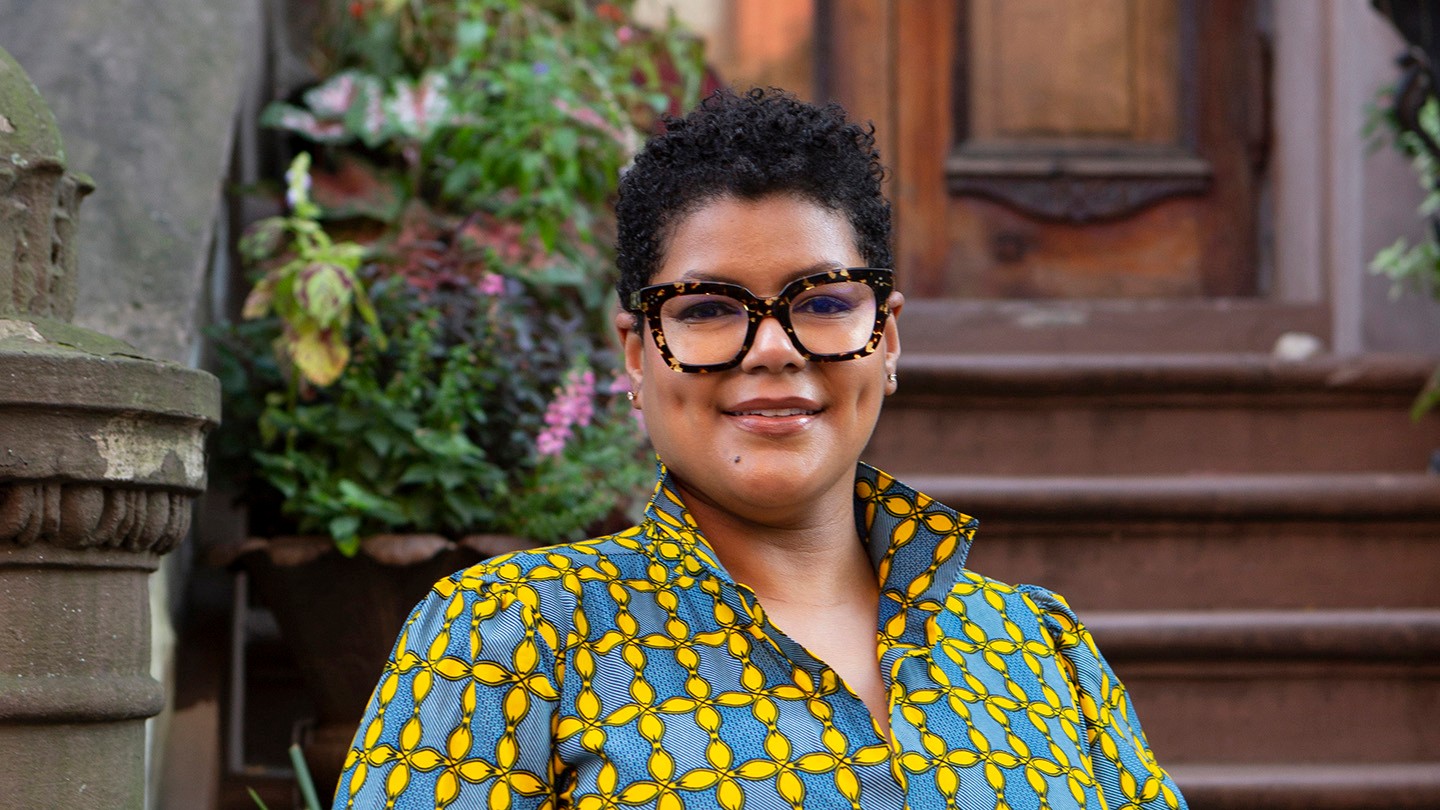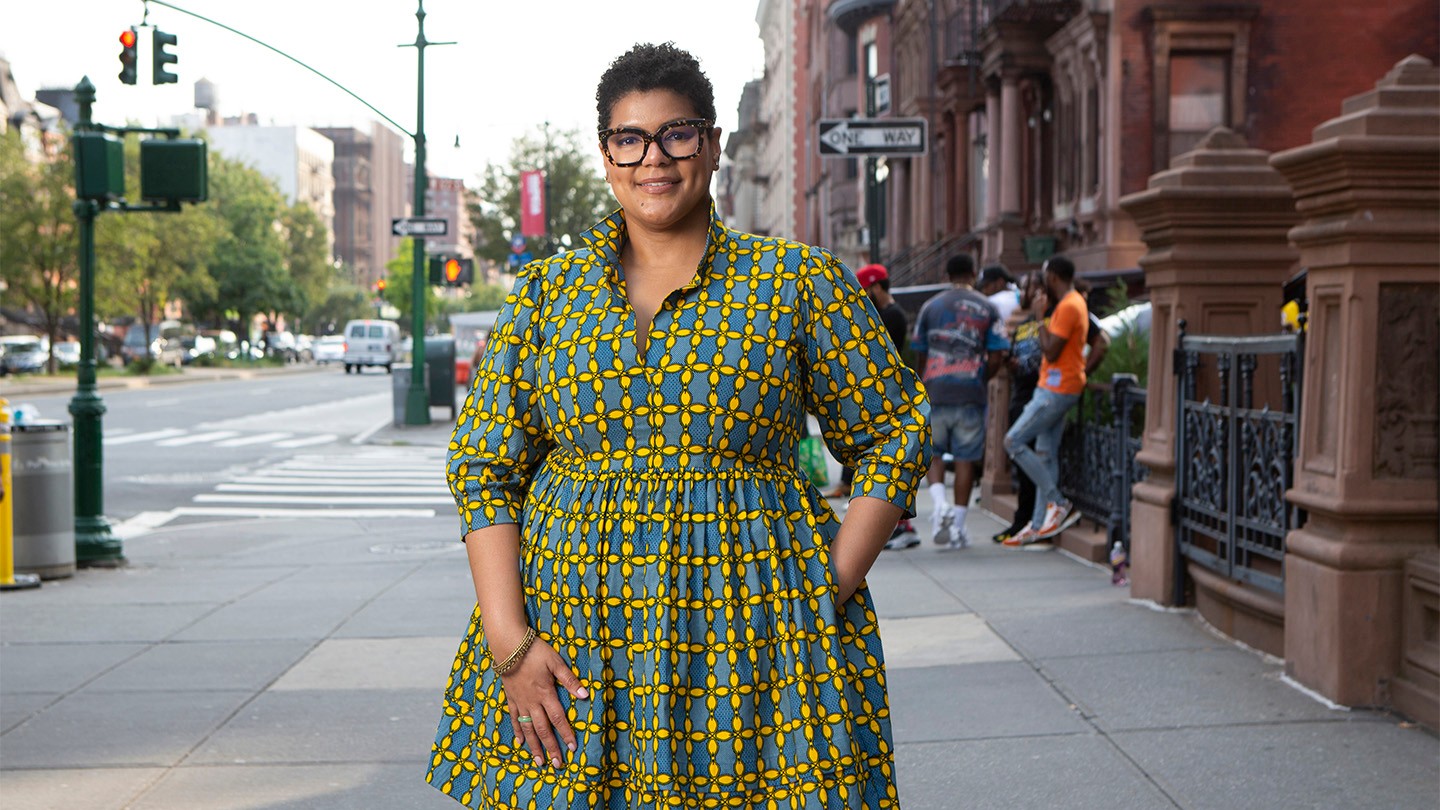
Culture
“You can’t fish from one pool and think you get the best talent”
11 October 2021
As Barclays’ new Global Head of Race at Work, Azura Mason is leading work to attract and support Black colleagues across all levels of the bank. She shares why a rigorous approach to diversity and inclusion strategy is vital to business success – and why she’s motivated by teams that take real actions.
Having spent the last two and a half years as Head of Business Management for Barclays Bank PLC Legal, Azura Mason now has a new role: Global Head of Race at Work. To some, this could seem like a shift in focus – but, she explains, it’s a “full circle” moment in her career.
After graduating from Howard University School of Law in Washington DC, US, Mason had helped to start a charter school – a publicly funded school that is operated independently – in the city, driven by a desire to work towards racial equity for children of colour.
“I started that work and loved it, but eventually moved into roles in a law firm and corporate environments,” she says. “I was getting further and further away from the work I had done when I first started my career. And so to end up back here – I think my younger self would be saying: ‘Exactly right. This is where you were meant to be.’”
Now two months into her new role, Mason is responsible for fulfilling the bank’s Race at Work agenda, which aims to attract, advance and retain Black and ethnically diverse colleagues.

Barclays’ new Global Head of Race at Work, Azura Mason.
If we are not accessing a talent based on racial and ethnic diversity, then we don't have top talent. And that doesn't lend itself to being a successful corporation.
Global Head of Race at Work at Barclays
She is excited at the prospect of bringing her passion for diversity and inclusion – which has long been a part of her life at Barclays – to a dedicated full-time role: “It's work that I care so much about. I spent a lot of time trying to figure out how to do it in addition to my day job, so I really am grateful for the opportunity to be able to focus on it.”
At the same time, her legal background has been crucial in shaping her approach. “Lawyers are trained in a way to think about problems, to analyse information in a particular way,” she says. “Thinking about a diversity and inclusion role, if it is tied to a business outcome, then I need to provide this service for the bank to have the best results.”
“We worked around the clock because it mattered to us”
Although her outlook is based on a wealth of expertise gained at the bank and beyond, Mason describes her experiences last year as key to her decision to lead Race at Work.
She recalls the moment she heard about George Floyd’s death. “I remember looking frantically for my remote because I couldn't watch the video,” she says. “I knew what was coming. But I think the telling thing for me is the way I felt about it was the same way I felt about Tamir Rice and Eric Garner and Sandra Bland and Breonna Taylor. I think it's important for people to realise these feelings weren’t new for Black people in the US.”
Reflecting on why it was the events of last year which put a spotlight on the Black lives matter movement, she says: “I spent a lot of time thinking: ‘What was the difference this time?’ And I think it was a convergence of events. We were completely shut down in our homes during the pandemic because of this understanding about the value of human life – that this would save lives. And then you're at home and watch a video where life was devalued to a degree that was this shocking and horrifying. I think those two things struck people.”
Let's dedicate talent, skill, time resources to diversity and inclusion, in the same way we would anything else.
Global Head of Race at Work at Barclays

Mason says that when it comes to important issues, Barclays leaders are “comfortable being challenged”.
It was in the aftermath of Floyd’s murder that Mason began work on the Path Forward paper with the leadership team of the bank’s US Black Professionals Forum, a colleague network. This research document recommended actions for Barclays to take to address racial equity within the bank’s policies and culture – but also for its clients and wider community. The bank had signed the UK government’s Race at Work Charter in 2019, while the Black Professionals Forum has long played a vital role in identifying ways to improve inclusivity; the paper helped to accelerate this activity, broadening its focus.
“We were all feeling shell-shocked. We were feeling frustrated,” she says. “And I think we were looking for an avenue to channel that energy into some positive change. We worked around the clock because it mattered to us and we hoped someone would care. But then, to feel like we work for an organisation where that is not just well received, but also says, ‘Well, let's do this.’ It was empowering and motivating.
“Our leaders at Barclays are comfortable being challenged. When there's a real problem, and someone has a solution, they will allow you to lean into that and take action. I probably became more invested in Barclays than I'd ever been.”
She says it has been rewarding to see real actions taken at the bank in the last year: from the publication of a 12-point Race at Work Action Plan, to the introduction of mandatory race and ethnicity training, to Ray Dempsey joining the bank as Chief Diversity Officer.
“I think that's the part that motivated me, and continues to motivate me,” she says. “Frequently, we don't think of diversity and inclusion as tied to a business outcome, so across the industry we don't apply the same amount of rigour. But what I like about Ray's particular approach is he thinks about it like you would any other business strategy. Let's dedicate talent, skill, time and resources to it, in the same way we would anything else.”
“This journey isn't going to be easy”
Attracting talent is a priority for Mason as she starts her role – and Barclays’ new Race at Work Ambitions outline measurable aims, including increasing the number of under-represented minority employees in the US and UK by 20% and 25% respectively by 2025 – and doubling the number of Black employees at managing director level by 2022.

Mason in Harlem, New York.
“You can't fish from one pond and think you get the best talent,” says Mason. “If we are not accessing a talent based on racial and ethnic diversity, then we don't have top talent – we have a certain level of talent from one segment of the workforce. And that doesn't lend itself to being a successful corporation.”
Of course, attracting new colleagues is just one part of this – creating an atmosphere where talent is retained is equally crucial. “You get the best out of talent when they feel like they belong and can show up the way they are,” she adds. “I can speak from experience – as a professional, I want to be exhausted from work because I was given challenging jobs and an opportunity to grow. I don't want to be tired because I feel I have to hide my Blackness. If I’m spending any energy doing that, I'm not spending that energy on being creative, on being strategic, on being effective as a leader.”
Asked what success would look like, she says the goal is for Race at Work “to be embedded in the fabric of the way we think – in every business strategy and every HR process”. Her first priority is creating a plan of action that aligns with the bank’s broader strategy. But she’s also enthusiastic about the opportunity to learn – and set new ambitions.
“For me, that will be the biggest win because this journey isn't going to be easy. This systemic inequality in workplaces has lasted a very long time. It will take a tremendous amount of consistent, deliberate action. So I'm excited about what we will learn through this process – and having something to measure that against.”